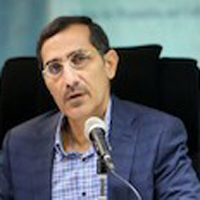Study on the Legal Status of Traditional and Complementary Medicine and the Challenges Ahead in Iran
Author(s):
Abstract:
In recent years, traditional and complementary medicine has received a great interest from the public; however, the provided legal support to this field and the legal evolution and progress have not been aligned with its increasing popularity. We have experienced a ban on the practice of traditional medicine several times. Some branches of complementary medicine have also faced similar problems. In the last decade, due to the development and launch of WHO traditional medicine strategy, there has been a more positive environment for continuing the practice of traditional medicine in Iran. All these fluctuations intensify the necessity of raising fundamental legal issues in this area. This article aims to explain the main legal issues and challenges raised to the current order prevailing in Iran. The research method is documentary study based on legal analysis. The findings of this study have recognized four major challenges: rejection or acceptance of public order and Good morals, dual interpretation of the right to health, lack of coding for all aspects of indigenous knowledge of traditional and complementary medicine, and finally, the weakness of trade ::union::s identity.
Special attention to addressing the four challenges, has been considered by almost other authors. The first two challenges are intellectual and theoretical, and the third and fourth ones are practical. The contribution of this branch of medicine to providing people access to medical services and right to health has to be considered. The issue of expanding accessibility and diversity of medical services is more consistent with the idea of right to health, because expanding some branches such as traditional and complementary medicine will automatically lead to more access to medical services and fosters their diversity. Then, the question of service quality arises. Concerning quality assurance, better participation of traditional medicine experts in monitoring boards and taking advantage of integrated supervision model may help to mitigate the existing problems.
Special attention to addressing the four challenges, has been considered by almost other authors. The first two challenges are intellectual and theoretical, and the third and fourth ones are practical. The contribution of this branch of medicine to providing people access to medical services and right to health has to be considered. The issue of expanding accessibility and diversity of medical services is more consistent with the idea of right to health, because expanding some branches such as traditional and complementary medicine will automatically lead to more access to medical services and fosters their diversity. Then, the question of service quality arises. Concerning quality assurance, better participation of traditional medicine experts in monitoring boards and taking advantage of integrated supervision model may help to mitigate the existing problems.
Keywords:
Language:
Persian
Published:
Iranian Journal of Medical Law, Volume:10 Issue: 39, 2017
Pages:
101 to 120
magiran.com/p1653413
دانلود و مطالعه متن این مقاله با یکی از روشهای زیر امکان پذیر است:
اشتراک شخصی
با عضویت و پرداخت آنلاین حق اشتراک یکساله به مبلغ 1,390,000ريال میتوانید 70 عنوان مطلب دانلود کنید!
اشتراک سازمانی
به کتابخانه دانشگاه یا محل کار خود پیشنهاد کنید تا اشتراک سازمانی این پایگاه را برای دسترسی نامحدود همه کاربران به متن مطالب تهیه نمایند!
توجه!
- حق عضویت دریافتی صرف حمایت از نشریات عضو و نگهداری، تکمیل و توسعه مگیران میشود.
- پرداخت حق اشتراک و دانلود مقالات اجازه بازنشر آن در سایر رسانههای چاپی و دیجیتال را به کاربر نمیدهد.
In order to view content subscription is required
Personal subscription
Subscribe magiran.com for 70 € euros via PayPal and download 70 articles during a year.
Organization subscription
Please contact us to subscribe your university or library for unlimited access!


